FIRSTRAND’s plan to diversify revenue sources will see it expand in the UK.
It plans to build foreign currency earnings slowly by extending its instalment finance business in the UK and deposit-taking franchise in the Channel Islands, CEO Johan Burger said on Tuesday.
The plan comes as growth in the South African economy — its largest market — slows and amid fears of a sovereign credit downgrade to junk.
In the six months to December, FirstRand’s bad debts rose 2%, prompting it to tighten up on lending.
In the UK, FirstRand owns vehicle asset finance company MotoNovo Finance and lends mainly to individuals. In SA, it owns First National Bank, Rand Merchant Bank, Wesbank and Ashburton.
Mr Burger said the plan was to extend lending beyond individuals in the UK and to start considering other products and players such as small businesses for vehicle and asset finance.
"We have a business in the UK, MotoNovo. It generates R1bn in annual earnings for FirstRand. It’s got a narrow product set. All we are saying: let’s expand the mandate," Mr Burger said.
To grow the deposit-taking franchise in the Channel Islands, Mr Burger said FirstRand would target clients who had requirements for offshore cash balances.
Mr Burger said growing in the UK did not mean that FirstRand was leaving SA.
"We are a dominant regional player and we would like to be even more dominant. To protect that we have to expand and get access to hard currency," Mr Burger said.
"Given the lower economic growth environment in SA and the rest of Africa, the UK does offer a better risk reward opportunity. The cost of capital in Africa is going to be a lot higher and growth is lower."
In the UK, cost of capital was lower and growth higher.
SA’s growth has been pegged at below 1% this year.
For the UK, the International Monetary Fund expects growth to average about 2.2% over the medium term.
In SA, the repo rate — the rate at which the central bank lends to banks — is 6.75%, while the Bank of England has kept interest rates at 0.5% since 2009.
FirstRand said it was still committed to growing its business on the rest of the continent, but this would be at a slower pace due to the tough economic environment prevailing.
Mr Burger said hard foreign currency earnings would make it easier for FirstRand to invest in the rest of Africa as most of its investments there were dollar-denominated.
"We have to be able to raise dollars and that’s why we need a presence in developed markets to access hard currency funding," Mr Burger said.
FirstRand shares ended on Tuesday down 7.43% to R45.60, as the banking group posted slower interim earnings growth.
It is the largest bank by earnings and market capitalisation in the country and has posted double digit growth in earnings in the past.
However, in the six months ended-December, the group reported a 9% rise in normalised earnings to R10.9bn.
"We are coming off a very high base — five years of compound rate of about 20%," Mr Burger said.
"We are entering a much tougher operating environment so growth rates will come down."
FirstRand had delivered an unmatched return on equity of 23.4% among the major banks in SA, Mr Burger said. It was higher than FirstRand’s internal target of 18%-20% return on equity.
Some analysts said it was the outlook that looked bleak and the share had corrected after trading on a higher multiple.
FirstRand is at a price: earnings ratio of about 11.8. Nedbank, Standard Bank and Barclays trade at between 8.3 and 9.1.


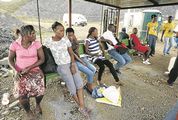
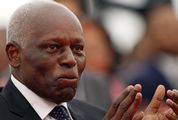

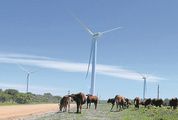


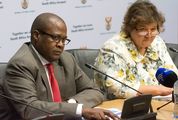
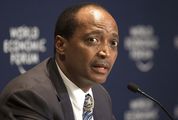

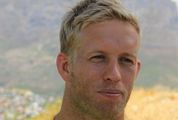



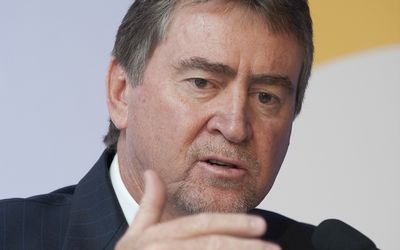





Change: 0.40%
Change: 0.47%
Change: -0.49%
Change: 0.53%
Change: 1.03%
Data supplied by Profile Data
Change: 1.71%
Change: 1.28%
Change: 0.40%
Change: 0.00%
Change: 1.64%
Data supplied by Profile Data
Change: -1.27%
Change: 0.00%
Change: 0.05%
Change: -0.08%
Change: 0.35%
Data supplied by Profile Data
Change: -0.02%
Change: 0.21%
Change: -0.06%
Change: 0.53%
Change: 0.70%
Data supplied by Profile Data